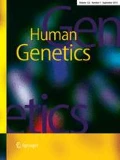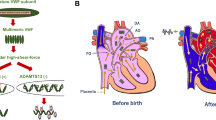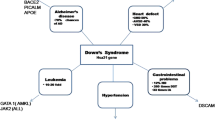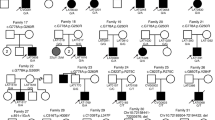Abstract.
Congenital afibrinogenemia is an autosomal recessive disorder characterized by the complete absence of detectable fibrinogen. We previously identified the first causative mutations for this disease in a non-consanguineous Swiss family. These were homozygous deletions of approximately 11 kb of the fibrinogen alpha chain gene (FGA). Our subsequent study revealed that the majority of cases were attributable to truncating mutations in FGA, with the most common mutation affecting the donor splice site in FGA intron 4 (IVS4+1 G→T). Here, we report 13 further unrelated patients with mutations in FGA, confirming the relative importance of this gene compared with FGG and FGB in the molecular aetiology of afibrinogenemia. Three other patients were homozygous for mutations in FGG. Eight novel mutations were identified: five in FGA and three in FGG. Sufficient mutation data is now available to permit an effective strategy for the genetic diagnosis of congenital afibrinogenemia.
Similar content being viewed by others
Author information
Authors and Affiliations
Additional information
Electronic Publication
Rights and permissions
About this article
Cite this article
Neerman-Arbez, M., de Moerloose, P., Honsberger, A. et al. Molecular analysis of the fibrinogen gene cluster in 16 patients with congenital afibrinogenemia: novel truncating mutations in the FGA and FGG genes. Hum Genet 108, 237–240 (2001). https://doi.org/10.1007/s004390100469
Received:
Accepted:
Issue Date:
DOI: https://doi.org/10.1007/s004390100469




